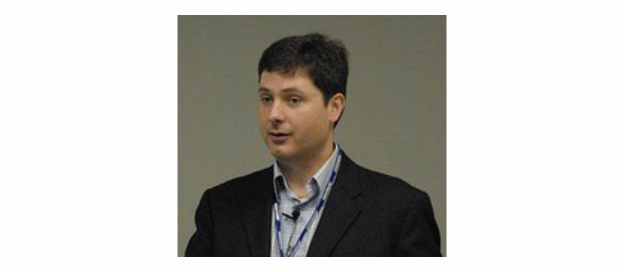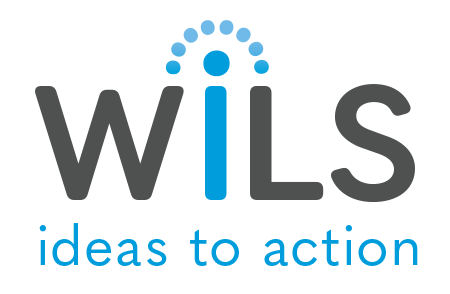
At WiLS, we want to bring valuable information to our library partners, including information about the missions and big ideas of the vendors they may already do business with. Each month, WiLS will interview a vendor partner in order to bridge the gap and open the door to valuable collaborations. This month, we are delighted to share insights from Dave Stout, Sales Director of bepress Digital Commons Services.
If you have any feedback about this interview or would like to suggest vendors for future ones, contact Andrea Coffin at acoffin@wils.org or 414-979-9457.
Tell us about your company’s background. In 1999, University of California, Berkeley professors Robert Cooter, Aaron Edlin, and Ben Hermalin banded together to launch Berkeley Electronic Press, now simply called bepress.
The heart of bepress has always been about listening to faculty needs and responding with simple technology-based solutions that support scholars in the rapidly changing world of scholarly communications.
Initially, for us, that meant exploring alternatives to commercial scholarly journal publishing, which was plagued by slow turnaround times, limited access, and unreasonable prices. Later, that meant providing authors and universities and colleges themselves with the means to publish their research openly and widely. Digital Commons was born from a project with the California Digital Library (CDL), and has since become the leading, premier service of its kind.
Why do you, personally, choose to work with libraries? Growing up in Ann Arbor, Michigan, I was fortunate to live in a city rich in the tradition and successes of having a major research university as a cornerstone of the community. I was fortunate to have the opportunity to join a leading library-focused content provider in 2000.
I soon learned that there was a thriving world where dedicated librarians were actively delivering important services to their communities, be they academic or the general public. The intersection of technology and information was really ramping up during those years, so it was an exciting time to enter the industry.
For the past 15 years I have continued to be excited by opportunities to partner with librarians as they work to engage, improve, and impact the communities they serve. Librarians are professional, dedicated, interesting, and committed to making a positive impact. It’s challenging and rewarding, and I consider it a privilege to have worked with libraries and administrators for so many years.
What do you like to know about the libraries you work with? What helps you better understand their needs? Digital Commons, as a service, is more than just another technology project, so it’s often important to understand the forward-looking strategic plan for not just the library, but also the entire institution. Here are some examples of questions that help me understand the library and, more holistically, the broader institutional environment:
- Is there a desire to become more proactive in sponsoring original publishing activities for the community?
- Is there a need for a better, more sustainable approach to institutionally published journals, conferences, theses/disseratations, books, etc…?
- Does the strategic plan call for increasing the amount of grant funding or visibly demonstrating grant-funded activities?
- Does the plan call for increasing enrollment at the institution?
- Is there a desire to dramatically increase the global visibility of the scholarly and creative output of the institution?
- Does the library want to play a more proactive, and perhaps productive, role in leading scholarly communication conversations with the academic community on campus?
We believe, and our customer community seems to agree, that Digital Commons fits into these (and many other) campus-wide goals and conversations.
What big ideas are being worked on at your company? What problems are being solved? At bepress, our primary goal is to partner with libraries to help service the multitude of publishing needs on their campuses and in their communities. Two of the biggest needs authors have are making their works discoverable and demonstrating the impact of those works. A large number of our projects seek to address those needs and to assist libraries in better meeting those needs as well.
The Digital Commons Network is one of the biggest projects we’ve undertaken in the last couple years—you can read more about it here. Essentially, the Digital Commons Network is a portal that pulls together nearly a million full-text, open access works from across all Digital Commons repositories. Visitors can browse or search in over 1,000 disciplines and find an enormous variety of scholarly works. Search engines are incredibly important, and we do a lot of work to make sure Digital Commons content is discoverable, but we also felt there was an opportunity to re-introduce the serendipity of the browsing experience. The design of the Network achieves this by revealing unanticipated treasures to researchers and increasing the exposure of authors’ works to unexpected audiences. At this point, publications in the Digital Commons Network have been downloaded over 100 million times!
Our other big projects focus on helping libraries and scholars demonstrate the impact of their scholarship. Digital Commons already incorporates reporting capabilities that include Google Analytics (now Universal Analytics) and an author dashboard. But we wondered how we could help libraries demonstrate impact to the casual visitor, to the community, to their campus, in a simple, powerful, and, most importantly, visual way. So we recently developed and released the Readership Activity Map, an interactive world map that shows real-time download activity across the globe and can be added to any Digital Commons repository’s homepage. You can see an example of the map on Purdue University’s “ePubs” homepage here. The initial response to the map has been overwhelmingly positive and it has already become a valuable tool for libraries who, for instance, want to demonstrate to their Provost or President the global reach of the institution’s scholarship.
As a company, we’re constantly listening to our community to figure out what their greatest needs are, and how we can continue to develop our services to better meet those needs. Our President and CEO, Jean-Gabriel Bankier, recently had the pleasure of talking with journalist and open-access advocate Richard Poynder about bepress, Digital Commons, and the future of scholarly publishing in a lengthy interview published on Poynder’s popular blog, which can be read here.
You can also read stories about even more needs that Digital Commons is helping to meet on our blog, the DC Telegraph.
How can librarians become partners in product or training development? Having been founded by faculty at UC Berkeley, bepress has a long history of engaging the scholarly community and libraries in ongoing, future-looking dialogue about scholarly communications.
We believe that librarians are an integral component in delivering services around the publishing, discovery and access, and preservation of scholarly and creative content. In short, without the library, the Digital Commons community would be far less successful than they have been to date. The partnership between bepress, librarians, and the local campus community is a natural part of the ecosystem; it works well.
I like to call bepress “a learning organization,” as we sincerely strive to learn from our customer partners as the scholarly communications environment continues to change and evolve.
Do you have anything else you’d like to share here? One of the central tenets at bepress is the concept that “the model matters.” Meaning, bepress strives to deliver quality software to our customers, and also a suite of comprehensive, unlimited services and shared expertise. The model with which we deliver Digital Commons reflects bepress’ orientation toward dialogue, and encourages the sharing of new ideas.
Our service is unlimited by way of annual subscription, so Digital Commons customers know that they have on-demand access to their very own Consulting Services Representative/expert at bepress. This bepress Representative partners with them on any content projects they want to deploy in their Digital Commons site. What this really means is that each Digital Commons customer has, in effect, hired a part time expert with whom they can collaborate as often as needed to achieve optimal success within Digital Commons. Our model is different, unlimited, and we think it’s essential for helping our customers achieve maximum possible success as broadly and deeply as they desire within their local community.
